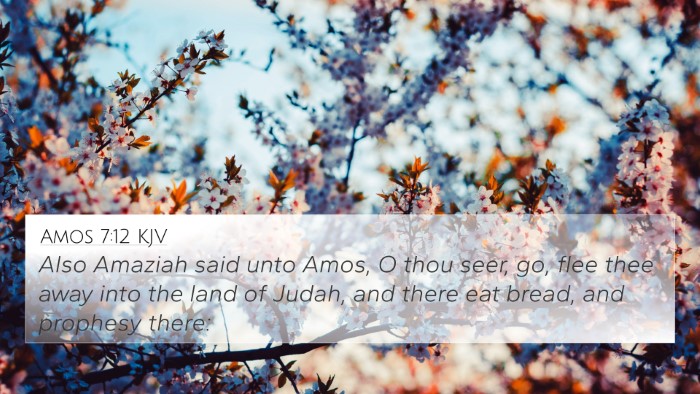Understanding Luke 13:31
Luke 13:31 says, "At that time some Pharisees came to Jesus and said to him, 'Leave this place and go somewhere else. Herod wants to kill you.'" This verse provides a glimpse into the tension surrounding Jesus' ministry, highlighting the dangers He faced even from political authorities.
Contextual Analysis
This verse reflects the urgent warnings that Jesus received and reveals the complex relationship between the Jewish religious leaders and the civil authorities of the time. The Pharisees, traditionally viewed as leaders of the religious community, appear to be acting in jest or perhaps in a misplaced form of concern for Jesus’ safety.
Commentary Insights
- Matthew Henry: Henry emphasizes the irony of the situation, noting that the Pharisees, who often opposed Jesus, now seek to warn Him, possibly out of self-interest or fear of His increasing influence.
- Albert Barnes: Barnes points out that the term "Herod" refers to King Herod Antipas, who was known for his ruthless behavior. The Pharisees’ warning indicates the threat that Jesus posed to the established order, which Herod was determined to maintain.
- Adam Clarke: Clarke highlights the implications of this warning as a reflection of the spiritual blindness of the leaders. Instead of repenting and recognizing Jesus’ authority, even the Pharisees resort to fearing Herod, illustrating their misguided values.
Thematic Connections
This verse connects with several themes throughout the Bible, including the persecution of God’s messengers, the interplay between authority and faith, and the call to courage in the face of danger. Some relevant Bible cross-references include:
- Matthew 23:37: "Jerusalem, Jerusalem, you who kill the prophets and stone those sent to you..." - highlighting the historical pattern of rejecting God's messengers.
- John 11:53: "So from that day on, they plotted to take his life." - showing that plotting against Jesus was a consistent theme.
- Luke 9:9: "But Herod said, 'I beheaded John. Who, then, is this I hear such things about?' And he tried to see him." - signaling Herod’s concern about Jesus and his previous actions against John the Baptist.
- Matthew 2:16: "When Herod realized that he had been outwitted by the Magi, he was furious, and he gave orders to kill all the boys in Bethlehem..." - illustrating Herod's violent tendencies.
- Acts 12:1-2: "It was about this time that King Herod arrested some who belonged to the church, intending to persecute them." - further demonstrating the threat posed by those in power towards God's people.
- John 15:20: "Remember what I told you: 'A servant is not greater than his master.' If they persecuted me, they will persecute you also." - addressing the inevitability of persecution for those who follow Christ.
- Revelation 2:10: "Do not be afraid of what you are about to suffer..." - encouraging perseverance amidst the threats faced by believers.
Comparative Analysis with Other Verses
The warning from the Pharisees serves as a juxtaposition to Jesus’ commitment to His mission. In the face of threats, He does not flee but instead confronts the realities of His calling. This can be compared to the resilience displayed by the Apostle Paul in Acts 20:22-24 where he states his determination to complete his ministry despite knowing of the dangers that await him.
Application for Today
For modern believers, Luke 13:31 serves as a reminder that following Jesus often comes with challenges and opposition. It encourages Christians to remain steadfast and confident in their calling, even when external pressures may suggest retreat. Understanding the underlying messages of this verse can aid in personal application and spiritual growth.
Conclusion
The narrative regarding Jesus in Luke 13:31 not only highlights His resilience but also opens a broader discussion on the nature of authority, faith, and the Christian calling to fulfill God’s mission regardless of the challenges. By exploring various commentaries and thematic connections, readers can enrich their understanding of this pivotal moment in Jesus' ministry.







